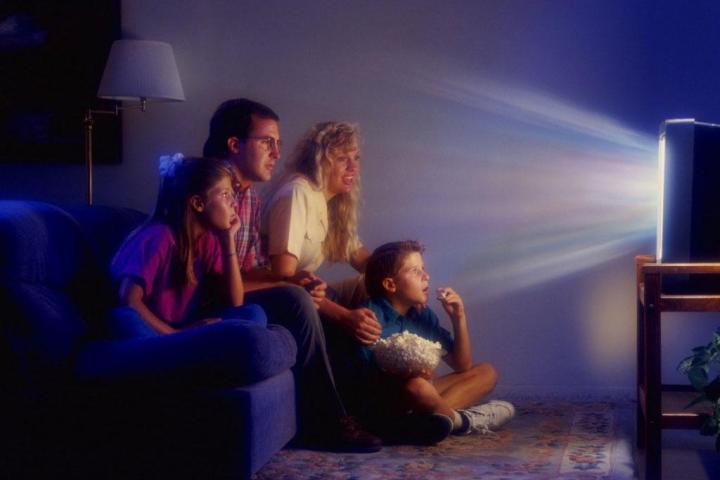
Our options for not just what to watch, but also how to watch them, have exploded.
This was in the pre-DVR era. TiVos were around, but not common. VCRs were common, but limited in their functionality. To kids today, it must be pretty hard to believe that people used to plan their lives around television schedules.
Technology has changed all that. We no longer held captive by certain nights of television (well, except maybe Sundays). As mass media shifts from broadcast signals to Wi-Fi signals, we also no longer have to fiddle with rabbit ears or sit through commercials. Our options for not just what to watch, but also how to watch them, have exploded.
But technological progress frequently comes with costs that aren’t always visible. Here are some great aspects of the “old way” of broadcasting television that are on the verge of disappearing forever:
Predictable TV schedules
An upside of having TV schedules so rigidly connected to the calendar: You always knew when your favorite TV shows would return with new seasons, give or take a couple weeks. That’s rarely the case these days. I blame The Sopranos for this, when nearly two years passed seasons five and six. (I also blame The Sopranos for popularizing the annoying habit of shows splitting their seasons into mini-seasons, with super-long gaps between new episodes.)
Streaming services aren’t helping the cause either. Waiting to release all episodes at once adds months to release dates.
Casual viewership
In the pre-DVR age, watching every episode of a series used to be a task accomplishable only by a hardened few. Miss an episode? That’s OK, so did most everyone. Back when it was common for TV shows to attract 20-plus million viewers per week, the vast majority of those viewers hadn’t seen the episode prior.
As the audience for individual TV shows – rather than entire series — has shrunken, the focus has shifted towards engaging those show’s core audiences. As a super-fan of a TV show you might be thinking: “Great! They’re tailoring this show just for me!”
But there’s a catch — casual viewers used to be able to keep shows afloat longer due to their sheer numbers. So that niche show you absolutely adore? Don’t expect it to stick around for seven seasons.
True water-cooler moments
Water-cooler chatter at work has gone from “I can’t believe that Monica and Chandler hooked up!” to “Don’t say anything, I haven’t seen it yet!”
Twitter has replaced the water cooler for those still brave enough to watch TV live, but true water-cooler moments are mostly extinct. Buzzed-about TV moments like Game of Thrones’s Red wedding or Lost’s first flash-forward can still get people talking, but they’re no “Who shot J.R.?” Heck, they aren’t even “Who shot Mr. Burns?”
Nowadays, when Saturday Night Live or Funny or Die parodies a moment in pop culture that “everybody is talking about”, they’re doing it less for people who actually saw the original moment, and more for people who just heard about it.
Accuracy in news
Yes, television journalists are still held accountable for misstatements of fact, just ask Brian Williams. But the 24-hour news cycle – not to mention competition with digital and social media – has given immediacy the edge over accuracy. A big edge. News producers have too much time to fill, with too many competitors willing to run stories that haven’t been fully vetted. News operations can’t afford to be as cautious as they once were.
Free TV
All TV used to be completely free, simple as that. Advertisers paid for content that anyone could see — content they wanted as many people to see as possible. That model is dying. Ad-supported TV still exists, but it’s filtered through cable systems, Internet providers, and streaming services. TV you have to pay for is no longer a supplement to the broadcast model, it’s replaced it.
I know what you’re saying: “Yes, Eric, all that is true – but look at how much better, quality-wise, TV has gotten!” To that, I’d point out that the old model had no problem producing shows like The West Wing, ER, NYPD Blue, Seinfeld, and Twin Peaks — shows from the ‘90s that still hold up very well today. Hey, maybe that’s why we’re seeing all these ‘90s reboots.
Editors' Recommendations
- Netflix’s 3 Body Problem is missing the one thing that made Game of Thrones great
- 5 things we want to see in Amazon’s Spider-Man Noir series





